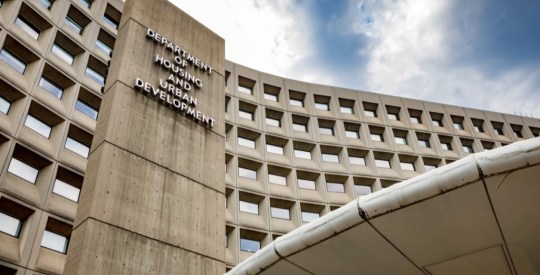Monday Morning Cup of Coffee takes a look at news coming across HousingWire’s weekend desk, with more coverage to come on bigger issues.
Happy Halloween, we hope everyone enjoyed the weekend’s festivities. It was not quiet for the housing economy.
And since it’s the season, let’s begin with a witch hunt!
Forbes is running a commentary that the big, bad subprime mortgage is back (in the United Kingdom, but still). The opinion piece, from Tim Worstall, does a pretty good job of taking us all back down memory lane. The best part of his work is explaining how the U.S. and UK subprime crises differed in key ways.
Worth a read, since those who do not learn from history are doomed to repeat it. Not a problem for regular readers of HousingWire.
In other top news, the Pennsylvania Public School Employees’ Retirement System won its day in court against Bank of America. Just as Worstall mentions, pension funds both here and abroad took a beating during the subprime crises; And they still fight back.
In a 10-Q filing, all the way at the bottom, there is this:
The parties in Pennsylvania Public School Employees' Retirement System v. Bank of America, et al. agreed to settle the claims for $335 million, an amount that was fully accrued as of June 30, 2015. The agreement is subject to final documentation and court approval.
Reuters published an article on the situation late Friday, BofA settles claims of “misleading shareholders about its exposure to risky mortgage securities and its dependence on an electronic mortgage registry known as MERS.”
So, yes, it’s just another settlement for BofA, which is probably really used to this kind of development.
“The bank has spent more than $70 billion since the financial crisis to resolve legal and regulatory matters, including those tied to its purchases of Countrywide in July 2008 and Merrill Lynch & Co six months later,” the article states.
OK, now for some good news. Motley Fool writer Dan Caplinger has no position in Ellie Mae stock, but probably regrets it after writing about how well the residential mortgage origination software provider is doing right now.
The numbers are impressive, Caplinger writes:
“Ellie Mae continues to attract more people to its groundbreaking software systems. Its Encompass system saw growth in active user counts of 30% year-over-year to 135,000, and the number of cloud-based subscribers rose at an even faster 47% rate. Six of every seven active users of Encompass are on the cloud version of the software product, and Ellie Mae managed to boost average revenue per user by 24% year-over-year to $520. Seat bookings also hit a new record because of strength in the mortgage industry.”
And he’s right to speak big about Ellie Mae, as all signs point to continued growth.
Here’s Caplinger’s conclusion:
“In the end, Ellie Mae's growth will rely on continued strength in the housing and mortgage markets, and so anything that stands in the way of good conditions in those markets poses a threat to the mortgage-software specialist's future. For now, Ellie Mae is firing on all cylinders and seems prepared for whatever the market will throw at it.”
The New York real estate market is also in Ellie Mae-mode — that is, a period of sustainable and perfectly balanced growth. At least that’s according to this report based on analysis in Quartz. Because, numbers.
“It will surprise few that the property markets in London and Hong Kong look a bit bubbly. But get this—real estate in New York is “fairly valued,” according to a new report,” writes Jason Karaian.
“Economists at UBS crunched the numbers for the world’s major financial centers, building a “global real estate bubble index” from a variety of indicators, including deviations in house prices from long-term trends, local incomes, and rents. It also considers trends in construction and lending.”
This comes as no surprise to the residents of the Big Apple, long used to insane real estate everything. But Karaian does explain the proper consideration that “expensive” doesn’t mean “bubble.” Sorry renters, sorry.
Housing officials in the fair-housing quagmire that is Baltimore received an extension to build more units for the disabled. Of course, what’s really insufferable and enraging is the fact that the decree for the city to do so dates back to 2004.
The truth is the city made pretty admirable progress, to be fair.
According to the Baltimore Sun, “the department said that as of Aug. 31 the housing authority had provided all but 54 of the 756 housing units it had promised in order to meet federal accessibility standards. The judge extended the city's deadline to Dec. 31, 2016.”
The Federal Deposit Insurance Corp. closed no banks this weekend.



